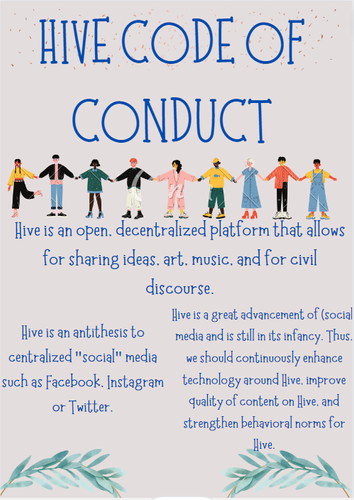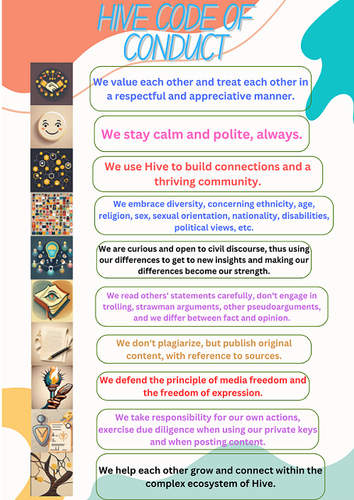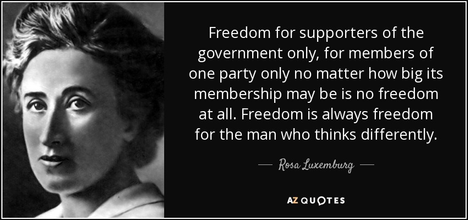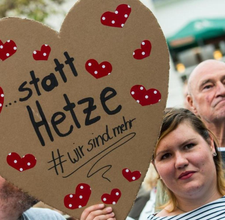| Dear Hiveans | Liebe Hiver | Queridos Hiveanos |
|---|---|---|
| Today I'd like to share my view on current "anti-fascist" demonstrations in Germany. | Heute möchte ich meine Meinung zu den aktuellen "antifaschistischen" Demonstrationen in Deutschland darlegen. | Hoy me gustaría compartir mi opinión sobre las actuales manifestaciones "antifascistas" en Alemania. |
| I don’t like extremism, but I do like radical ideas (about the difference between radical and extreme I wrote here). | Ich mag keinen Extremismus, aber ich mag radikale Ideen (über den Unterschied zwischen radikal und extrem schrieb ich hier). | No me gusta el extremismo, pero sí las ideas radicales (sobre la diferencia entre radical y extremo escribí aquí). |
| Extremism is dangerous, from all sides (not only left and right, but also religious fundamentalism or environmentalism). | Extremismus ist gefährlich, und zwar von allen Seiten (nicht nur von links und rechts, sondern auch von religiösen Fundamentalisten oder Environmentalisten). | Los extremismos son peligrosos, vengan de donde vengan (no sólo de la izquierda o de la derecha, sino también del fundamentalismo religioso o del ecologismo). |
| In recent weeks in Germany there have been some demonstrations against „fascists“ (mostly by people unable to define fascism, more), AfD voters and xenophobes. | In den letzten Wochen gab es in Deutschland einige Demonstrationen gegen "Faschisten" (meist von Leuten, die nicht in der Lage sind, Faschismus zu definieren, mehr), AfD-Wähler und Ausländerfeinde. | En las últimas semanas en Alemania ha habido algunas manifestaciones contra los "fascistas" (en su mayoría por personas incapaces de definir el fascismo, más), los votantes de AfD y los xenófobos. |
| Though I find a potential election success by the AfD dangerous and don’t like their politics and personnel, I have some questions: | Auch wenn ich einen möglichen Wahlerfolg der AfD für gefährlich halte und ihr Personal nicht mag, habe ich einige Fragen: | Aunque me parece peligroso un posible éxito electoral de la AfD y no me gusta su personal, tengo algunas preguntas: |
| - What do these protesters want to achieve? Will even one voter or potential voter of the AfD now think „oh, there are people who don’t like me. Now I‘ll vote differently.“? | - Was wollen diese Demonstranten erreichen? Wird auch nur ein Wähler oder potenzieller Wähler der AfD jetzt denken: "Oh, es gibt Leute, die mich nicht mögen. Jetzt werde ich anders wählen."? | - ¿Qué quieren conseguir estos manifestantes? ¿Pensará ahora un solo votante o potencial votante de la AfD "oh, hay a quien no le gusto. Ahora votaré diferente"? |
| - Isn’t this exclusion / ostracism of approximately 20% of the population exactly that kind of behavior that the right wing is accused of by the protesters? | - Ist diese Ausgrenzung / Ächtung von etwa 20 % der Bevölkerung nicht genau das Verhalten, das den Rechten von den Demonstranten vorgeworfen wird? | - ¿No es esta exclusión / ostracismo de aproximadamente el 20% de la población exactamente ese tipo de comportamiento del que acusan a la derecha los manifestantes? |
| - Wouldn’t it be more helpful to think hard about why such a big proportion of the population feels cut off by society and not represented in the political sphere? | - Wäre es nicht hilfreicher, sich Gedanken darüber zu machen, warum sich ein so großer Teil der Bevölkerung von der Gesellschaft abgeschnitten und in der Politik nicht vertreten fühlt? | - ¿No sería más útil pensar detenidamente por qué una proporción tan grande de la población se siente apartada de la sociedad y no representada en la esfera política? |
| - Or is this more about self-promotion or image cultivation of the protesters? | - Oder geht es hier eher um Selbstdarstellung oder Imagepflege der Demonstranten? | - ¿O se trata más bien de autopromoción o de cultivo de la imagen de los manifestantes? |
| I understand the feeling of (some) protesters that the election polls are worrying and that they want to draw attention to this. But - as DEI (Diversity, equity, and inclusion) seems to be very much en vogue - perhaps politicians and society should try to include people seen as extremist instead of demonizing them. | Ich verstehe das Gefühl von (manchen) Demonstranten, dass die Wahlumfragen besorgniserregend sind und dass man darauf aufmerksam machen möchte. Aber - da DEI (Diversity, Equity, and Inclusion) sehr en vogue zu sein scheint - sollten Politiker und die Gesellschaft vielleicht versuchen, Menschen, die als extremistisch angesehen werden, einzubeziehen, anstatt sie zu dämonisieren. | Entiendo el sentimiento de (algunos) manifestantes de que las encuestas electorales son preocupantes y que quieren llamar la atención sobre ello. Pero, dado que la DEI (diversidad, equidad e inclusión) parece estar muy de moda, quizá los políticos y la sociedad deberían intentar incluir a las personas consideradas extremistas en lugar de demonizarlas. |
Have a great day,
zuerich






A poll by the University of Virginia October, 2023:
I think if we look back in history, we can see an analog for the political climate of our time in the 1930s (I'm not the first person to say that).
What drove extremist then? Disorder after WWI and the Great Depression?
What drives it now? The one common denominator seems to be immigration. The world is a little lopsided when it comes to privilege. Millions of people want to join the advantaged countries. Many people in those advantaged countries feel threatened by the influx.
Who are the extremists? The ones who welcome immigrants or the ones who resist them? Of course a protest is not necessarily violent, but it's hardly passive.
This may have been a longer answer than you expected, but I found your blog intriguing and relevant to the political climate in the U. S.
Thank you for your thought-provoking comment, @agmoore!
What a polarized world...
Yes...🙁
I believe we need more of this protest all around the world against extremist
Extremism is expected to be kept in check. If those that feels having immigrants is sort of a threat, then the government should decide what they want in favour of the masses, but have it in mind that some of these immigrants had contributed immensely to the development of their nation.
!MEME
Credit: atheistrepublic
Earn Crypto for your Memes @ HiveMe.me!